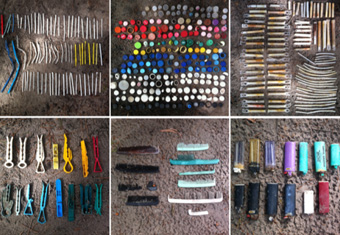

Abstract
Plastic debris is ubiquitous, occurring in every ocean basin worldwide, and pervades coastal and open ocean systems from densely populated coastal areas to the most remote parts of the oceans. Small plastic debris (microplastic) is so pervasive that we find it in seafood and table salt. The United Nations Environment Program (UNEP) describes plastic pollution as significant a challenge as climate change. In response, the United States and countries across the world have implemented a suite of mitigation strategies to reduce the impact of increasing plastic pollution on marine wildlife and ecosystems. However, because of gaps in the research regarding mechanistic processes that link plastic production and leakage from the waste stream to ocean plastic volumes, there are limited opportunities to evaluate the impact of these mitigation strategies; and therefore, the ability to develop the most effective toolbox of solutions at multiple scales and regions. My research applies ecological population modelling techniques to evaluate how different mitigation strategies in the United States, and globally contribute to reducing plastic entering the world’s oceans. The model incorporates the mechanistic pathways by which plastic enters the ocean, from production - to use - to waste management and leakage of plastic debris into the oceans, identifying and quantifying pools of plastic and sources of plastic pollution. This knowledge is an important component of connecting conservation goals of reducing the impacts from marine plastic pollution on biodiversity, ecosystems and the services they provide to the development of effective policy responses at the national and international level.
https://stephborrelle.wordpress.com
Follow Steph on Twitter: @PetrelStation
